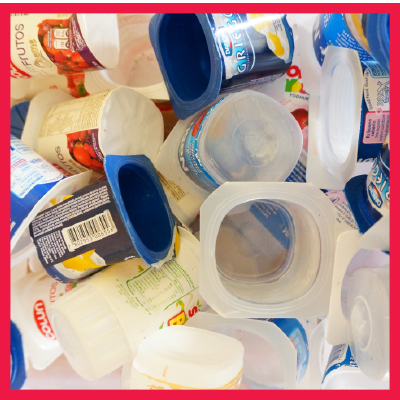

Plastics should be recycled, due to their short shelf life and long degradation time. In 2011, 821.000 tons of plastics were consumed in Chile, only 7% of which was recycled. It is estimated that 10% of municipal solid waste corresponds to plastics, which is equivalent to more than 610.000 tons per year. On the other hand, 48% of the plastics consumed annually are destined to containers and packaging, both short-lived products.
At present, only “mechanical recycling” is carried out in Chile, where plastic residues are washed, ground and melted to produce pellets and obtain products of relatively low quality. Among the limitations of this type of process are that only pure (single type) and clean plastics can be processed. Therefore, the recycling rate cannot increase significantly.
As an alternative, there is “chemical recycling”, which allows to treat all types of synthetic plastics (oil derivatives), even those with a certain degree of dirt and without requiring previous separation by type. This is mainly a pyrolysis process that consists of thermal degradation of the material in the absence of oxygen. As a product, a mixture of organic linear-chain compounds with different molecular weights is obtained: high-molecular weight hydrocarbons behave like waxes and the light ones can be used as liquid fuel in engines and boilers.
An important market for waxes is the hydrophobization of wood-based panels to give them greater moisture resistance. The market for this product in Chile is 3.500-4.000 tons/year and its price is 1.000-1.300 USD/ton. At present, all the hydrophobising products used for this purpose are imported. On the other hand, liquid industrial fuel continues to be in great industrial demand, although its price is low.
Until now, chemical recycling has not been carried out on an industrial scale in any South American country and only incipiently in North America, Europe and Asia. At UDT we initiated research in this field with Innova Chile projects 11IDL1-10588 “Evaluation of the availability of plastic waste and its recovery to obtain fuels” in 2011 and INNOVA 13IDL2-18714 “Development of products of commercial interest, starting from plastic waste for chemical and energy applications” in 2013. The technology developed is being scaled-up, validating the prototype on a pilot scale through the INNOVA project 15VEIID-45849 “Scaling of a thermoconversion plastic process to produce products of commercial interest”.
The results of plastics pyrolysis at laboratory scale allowed us to characterize the products, with surprisingly positive results. In fact, we found that waxes obtained from polyolefins offer similar performance than commercial hydrophobising products for wood-based panels. Likewise, the light hydrocarbon fraction has a chemical composition very similar to that of diesel fuel.
The most important process variables are currently being evaluated, including the behavior of different types of plastics, their mixtures and the influence of residues that may be present in post-consumption plastics. In parallel, a continuous pilot plant is being built to demonstrate techno-economic feasibility and obtain sufficient quantities of waxes and fuel for demonstration purposes.
The repercussions of the process under development can be very significant, as the generation of plastic waste will continue to grow in the foreseeable future and the new Law of Recycling Promotion and Extended Responsibility of the Producer will encourage its use. In addition, the market for hydrophobizing waxes and industrial liquid fuel is both large and attractive.
